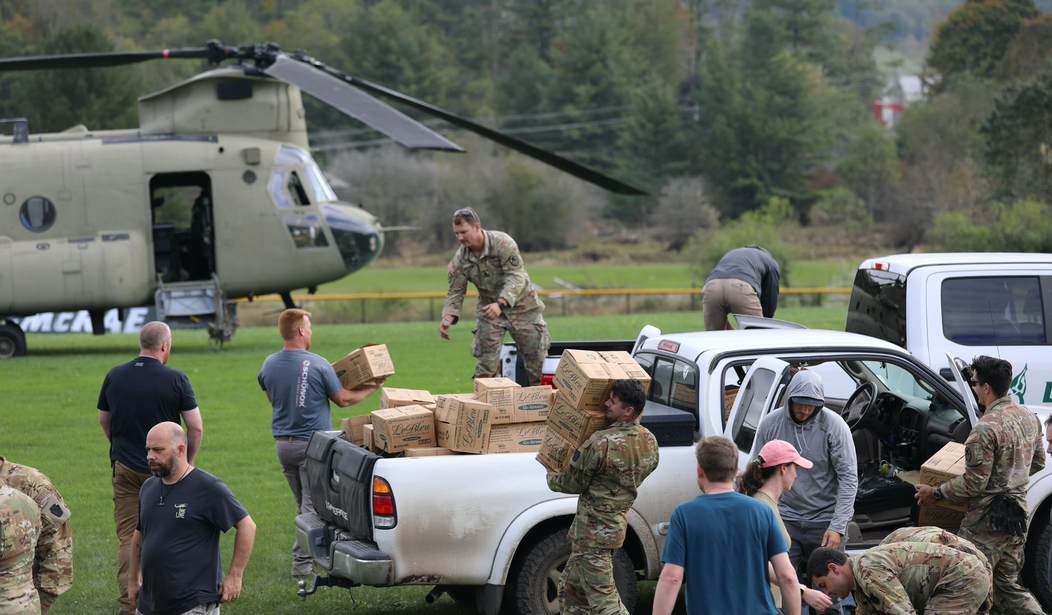Many question what happens next given there is an election looming.
Voter disenfranchisement in disaster-stricken areas is not a new phenomenon, but the particular situation unfolding in North Carolina raises both practical and political questions. With approximately 40,000 mail ballots sent to voters in counties heavily impacted by Helene and only 1,000 returned thus far, the stakes couldn’t be higher.
These hard-hit counties, which supported Donald Trump with 61% of the vote in 2020, are now grappling with slow recovery efforts, unreliable communications, and an inadequate federal response. As citizens in rural, heavily Republican regions seek to participate in the democratic process, the state's electoral integrity is on the line, especially as concerns about political maneuvering grow in the aftermath of the storm.
People have enough to worry about, they shouldn’t have to worry about how they are going to vote. That’s where the North Carolina state Legislature needs to step in and help guarantee people in western North Carolina their right to vote
A Delayed Federal Response and Its Impacts
One of the most glaring issues in North Carolina's recovery was the delayed federal response following Hurricane Helene. The Biden-Harris administration, for reasons that remain unclear, did not call upon federal resources stationed at Fort Liberty (formerly Fort Bragg) right in North Carolina for a full five days after the hurricane hit the state. As a result, many residents in these rural communities remained cut off from basic services, including electricity and internet access, for a crucial period.
The delay not only hampered immediate recovery efforts but may also have long-term consequences for voter turnout. In the aftermath of a disaster, communication systems are vital for distributing information about polling places, early voting options, and mail-in ballots. Yet, the late arrival of federal aid slowed efforts to restore these essential services. This is especially problematic in rural counties, where internet access is already sparse and residents rely heavily on mail-in voting due to long distances to polling places.
The Mystery of Starlink’s Discontinuation
Another blow to rural voters has been the unexpected discontinuation of Elon Musk’s Starlink satellite internet services, which had become critical for keeping these communities connected. Starlink played a pivotal role in restoring communication after the hurricane, allowing many people to access voting information and coordinate recovery efforts.
However, speculation has arisen that the discontinuation of Starlink services in these regions may be a form of political retribution. Regardless of the cause, the loss of reliable internet access in these communities only compounds the challenges faced by voters who are already struggling to recover from the hurricane.
Voter Disenfranchisement or Political Opportunism?
Given the challenges that Helene has posed, some have called for widespread changes to North Carolina’s voting procedures to ensure everyone can cast their ballot. Expanding mail-in voting deadlines, adding more early voting days, and increasing the number of polling stations are among the suggestions. These are valid and necessary discussions, but they must come with a crucial caveat: Any changes made to accommodate voters in the disaster-affected areas should be localized to those regions and not expanded statewide.
North Carolina has been a battleground state in recent elections, and any broad, state-wide changes to voting rules could be seen as politically motivated. Expanding voting measures across the entire state, including areas that were not affected by the hurricane, could open the door to accusations of partisanship. It’s important that we help the residents of these rural, counties without altering the broader electoral landscape in a way that might be seen as tipping the scales.
Moreover, sweeping changes could erode public confidence in the fairness of the election, at a time when trust in our electoral system is already fragile. By focusing relief and voting accommodations solely on the counties impacted by Hurricane Helene, North Carolina can ensure that every eligible voter is able to participate without inviting unnecessary controversy.
The right to vote is fundamental, and in times of crisis, it is more important than ever that we safeguard that right for all citizens. But this must be done carefully, with a focus on the voters who have been most affected by the storm, and without altering the rules for those who have not. North Carolina deserves a fair election, and that means helping those in need while preserving the integrity of the process for everyone else.
Ken Blackwell serves on the board of the Public Interest Legal Foundation. He was the Ohio Secretary of State, 1999-2007.























Join the conversation as a VIP Member